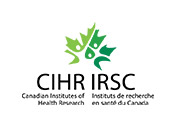
EQUIP Health Care is a broader program of research that consists of various projects focused on specific care areas – like Primary Health Care and Emergency Departments. EQUIP Health Care brings together an interdisciplinary team of researchers and knowledge users from: nursing, medicine, population and public health, community health sciences, and information and media studies, and leaders in Indigenous health, women’s health, and emergency and primary health care.
Why Health (In)Equity?
What is health (in)equity and why is it important?
Health equity is not the same as equality in health. Health equity is defined as the absence of avoidable or modifiable differences among groups of people, whether those groups are defined socially, economically, demographically, or geographically. Health inequities are unjust and avoidable, and represent unacceptable differences in health between and within groups of people [1]. Inequities are not only pervasive but increasing throughout Canada and globally [2]. Patient-centered care is an important means of fostering patient participation in their own care, and respectful relationships between health care providers and their clients [3]. A health equity lens builds on patient-centered care by focusing attention on strategies that can “close the health equity gap” by paying particular attention to those at greatest risk of poor health. In other words, health equity requires that we target care and financial support to people who have historically been and are the most marginalized in our society.

Health care providers can play an important role in delivering patient-centered care and in reducing health inequities [4-7]. While health care providers alone do not have the power to address all of the determinants of health (e.g. housing, socio-economic status, individual and structural racism and gender-based violence, etc.) they do have the power to address health inequities directly at the point of care, and to impact many of the determinants that create these inequities. Beyond the moral argument for providing accessible, patient-centered care to those who need it most, there is also a strong economic argument for providing equity-oriented health care at all levels [4]. People experiencing the greatest socio-economic inequities often have the poorest health [4]: improving health care experiences and outcomes for this group will result in the greatest gains, like reducing costs to the system. There are many actions that health care providers and organizations can implement to make their practices more equity-oriented. The EQUIP research team is always adding to our Health Equity Toolkit aimed at primary care providers, emergency departments and organizations. Please check out some of the Health Equity Tools here.
References
- Farmer P: Reimagining equity. In To Repair the World: Paul Farmer Speaks to the Next Generation. Edited by Weigel JL. Berkeley and Los Angeles, CA: University of California Press; 2013: 2-6
- Canadian Institute for Health Information: Trends in income-related health inequalities in Canada: Technical report.Ottawa, ON: Canadian Institute for Health Information; 2016.
- BC Ministry of Health: The British Columbia patient-centered care framework. In. Victoria, BC: BC Ministry of Health; 2015
- Wyatt R, Laderman M, Botwinick L, Mate K, Whittington J: Achieving Health Equity: A Guide for Health Care Organizations. IHI White Paper. . Cambridge, Massachusetts: Institute for Healthcare Improvement; 2016.
- Browne AJ, Varcoe C, Lavoie J, Smye V, Wong S, Tu D, Krause M, Godwin O, Khan K, Fridkin A: Enhancing health care equity with Indigenous populations: Evidence-based strategies from an ethnographic study. BMC Health Serv Res in press.
- Browne AJ, Varcoe C, Ford-Gilboe M, Wathen N, on behalf of the EQUIP Research Team,: EQUIP Healthcare: An overview of a multi-component intervention to enhance equity-oriented care in primary health care settings. Int J Equity Health 2015, 14.
- Browne AJ, Varcoe C, Wong ST, Smye VL, Lavoie JG, Littlejohn D, Tu D, Godwin O, Krause M, Khan KB, et al: Closing the health equity gap: Evidence-based strategies for primary health care organizations. Int J Equity Health 2012, 11:1-15.



